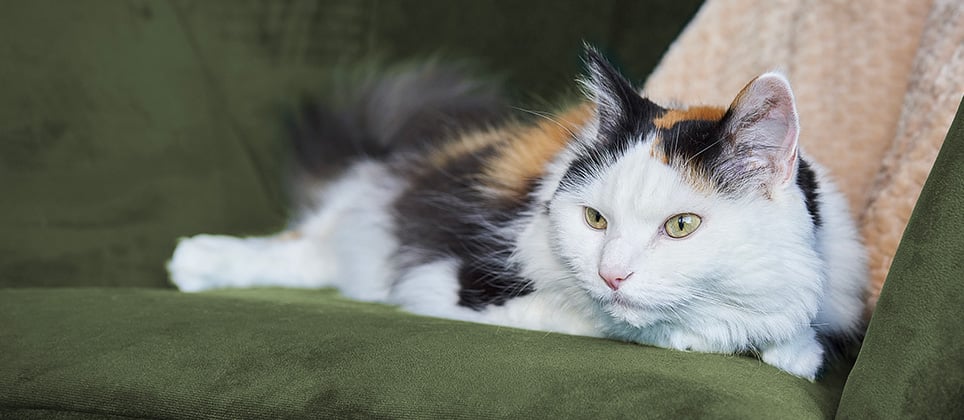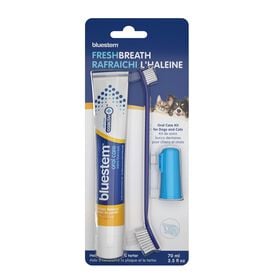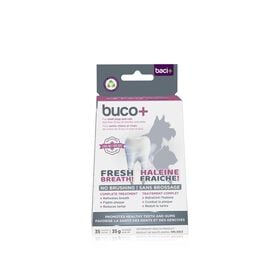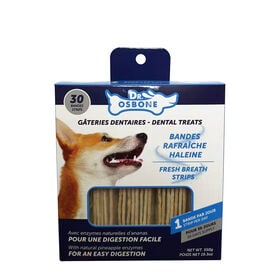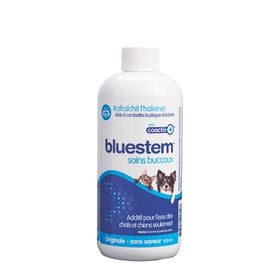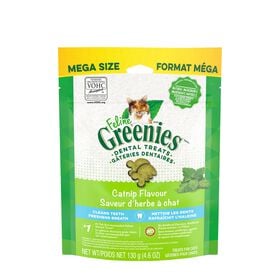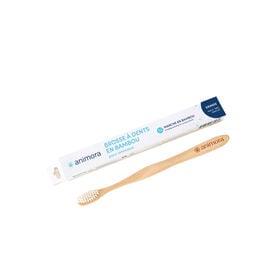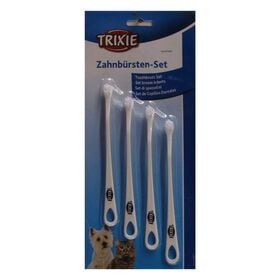Unfortunately, bad breath can sometimes ruin special moments spent with our beloved pets. Various factors, including periodontal disease and dietary habits, can cause bad breath in dogs and cats.
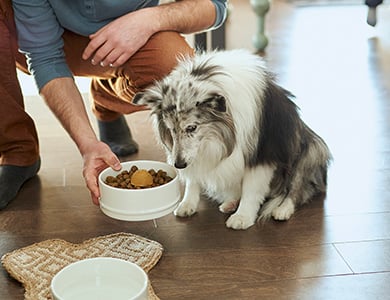
In this article, we will explore the different reasons behind this common issue so that you can take the necessary steps to promote your furry companion's overall health and well-being.
Dental problems
Maintaining your pet's dental hygiene ensures their overall well-being. When plaque and tartar accumulate, it can result in infections and bad breath. Common dental issues like gingivitis and dental abscesses can also lead to unpleasant odours.
Neglecting dental care can cause bacterial growth and further complications. To prevent such problems, you must include regular tooth brushing in your pet's routine and schedule regular check-ups with your veterinarian. Doing so can ensure a healthy mouth, fresh breath and optimal oral health for your furry friend.
Also read: Your pet's dental hygiene: everything you need to know
Foreign body
An object stuck between your pet's teeth or in their mouth can cause bacteria to develop and result in bad breath. Sometimes, a tiny piece of wood gets stuck behind one of their back teeth. This foreign object can also cause inflammation, increasing the possibility of unpleasant smells. It's important to closely monitor your pet's eating habits and ensure their surroundings are free of objects they could chew or swallow.
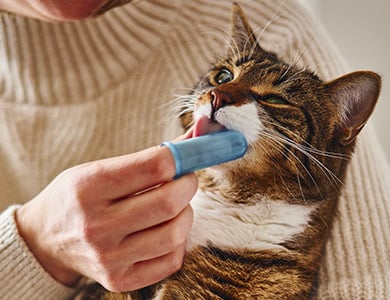
Improper diet
An imbalanced diet can cause bad animal breath as certain ingredients can promote bacterial growth and worsen odour. Opting for a balanced diet tailored to your pet's needs is essential to reduce the risk of bad breath.
Digestive issues
Gastrointestinal disorders, such as acid reflux, can cause bad breath in pets due to regurgitated gas and acidic substances from the stomach affecting mouth odour.
Respiratory infections
Dogs and cats can develop bad breath due to upper respiratory infections. Such infections can lead to nasal secretions and cough, which contribute to unpleasant mouth odour. It is essential to watch out for symptoms of respiratory diseases, such as frequent sneezing or congestion, and seek advice from a veterinarian if any such signs appear.
Systemic diseases
Certain diseases like kidney failure and diabetes can impact an animal's mouth odour. Kidney problems can lead to a high concentration of urea in saliva, which is transformed into ammonia by the enzymes in saliva. It results in a distinct odour on the animal's breath. Additionally, ammonia can cause lesions in the mouth, worsening the bad breath. On the other hand, diabetic pets can develop acidic fruit breath when the bloodstream becomes excessively acidic due to the accumulation of ketone bodies.
To keep your pet's breath fresh, carefully monitor their overall health, visit the vet regularly, and take preventative measures.
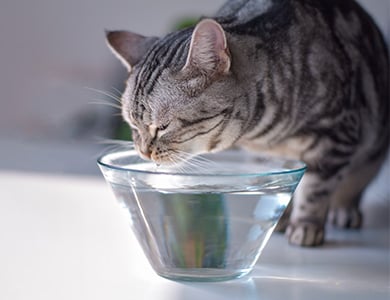
Brachycephalic breeds
Breeds with a brachycephalic skull structure, such as pugs and bulldogs in dogs and Persian and Himalayan in cats, have a higher risk of developing periodontal disease, which can cause bad breath.
These breeds have a unique facial anatomy that includes a flattened nose, narrow nostrils, and a shorter throat, which can lead to misaligned teeth. This condition creates areas in the mouth where dental plaque and tartar can accumulate. Additionally, these animals often have many skin folds, which can harbour bacteria and cause infections that result in unpleasant odours.
Coprophagy and eating disorders
Coprophagy refers to the habit of pets eating their own or other animal's feces. This behaviour can lead to bad breath in pets as the bacteria in the feces can transfer to their mouth and worsen the unpleasant smell. Training your pet to avoid this behaviour is crucial and will help prevent odour problems.
In addition, dietary issues such as a particular diet or sudden changes in diet can also impact breath odour. You can maintain fresh breath and avoid some of these problems by providing your pet with a well-balanced diet and monitoring their eating habits.
Dehydration
Dehydration in animals can often lead to bad breath because a dry mouth provides a suitable environment for the growth of odour-causing bacteria and the accumulation of food residues. Make sure your pet always has access to fresh water to prevent dehydration and bad breath.
Reaction to medications
Giving medication to your pet can alter their bacterial flora and cause changes in their breath odour. Therefore, monitoring your pet's breath and consulting your veterinarian if you notice any changes are important. Your vet can adjust the treatment if needed or recommend ways to minimize the impact of medication on your pet's breath while ensuring their overall health and well-being.
Maintaining good oral hygiene, monitoring your pet's diet, and noticing signs of underlying diseases are essential to ensure fresh breath for your dog or cat. If you notice any unpleasant odours, do not hesitate to consult your veterinarian to determine the cause of the problem and obtain an appropriate treatment plan.
